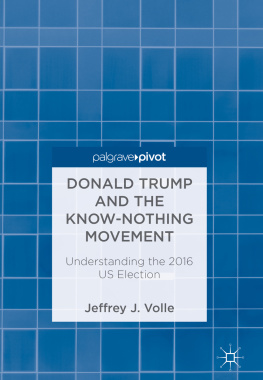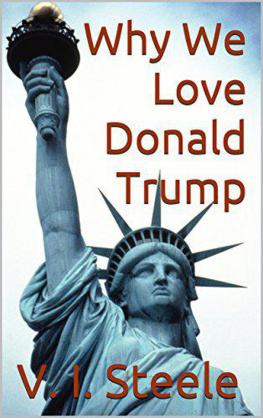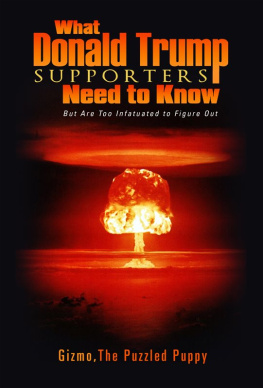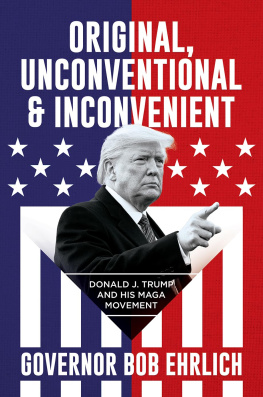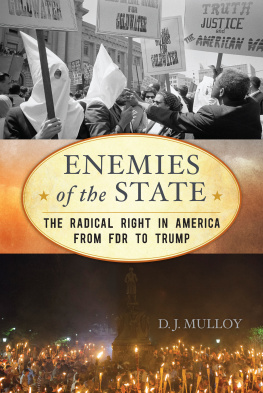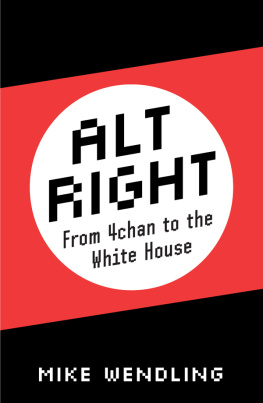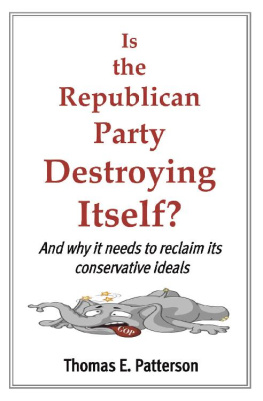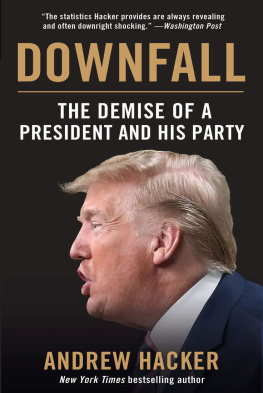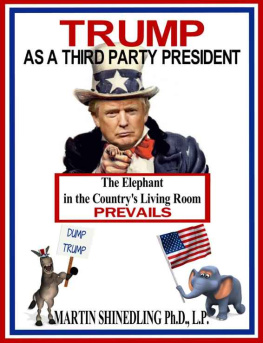1. Introduction
Almost two centuries ago a large part of the population of the United States was anti-immigration and anti-Catholic. Most of the population was concentrated in the northern states. After gaining a substantial share of the presidential vote in 1856 the American Party, as it was officially named, splintered, with some of its members joining the Republican Party by 1860. The Know-Nothing Party, as the American Party is known to most Americans today, represented a small fragment of political thinking, but only lasted a short period of time. Although anti-Catholic sentiment has dissipated since the 1850s in the United States, anti-immigration attitudes have continued to target certain groups ever since.
From the Chinese, to the Irish, to the Jews and to the Japanese, Americans have let their paranoia supersede judicious reasoning. Not to be outdone by the aforementioned examples of historical hysteria, the 2016 presidential election in the United States brought the Know-Nothings back from the depths of history. This book examines the background of the Know-Nothing movement in the 1850s and those parts of the movement that have re-emerged in the twenty-first century with the election of Donald Trump.
The Know-Nothing movement was not the only political group integrated into the Trump coalition. Governor George Wallaces American Independent Party, at its apex during the 1968 presidential election, was reborn in 2016 as a reaction to the development of movements such as Black Lives Matter and the loss of blue-collar jobs in the Midwest, blamed in part on the NAFTA agreement signed in 1993 under President Bill Clinton. Of course, the era of Bill Clinton continued with his wifes nomination in 2016 as the Democratic candidate for president.
There will be an avalanche of academic books written about the 2016 presidential election, as well as books written to provide the red meat so many partisans desire in todays age of Google. The academic field of politics is rapidly becoming substituted, or at least challenged, by Google, partisan news networks and political websites that feed the appetites of the left and the right. This book seeks to answer the question, Has the United States electorate learned from past third-party political movements?
Presidential elections in the United States are a narrative of the time in which they are held. As presidential historians and political scientists examine past eras and presidents who were considered able and honorable for much of the past century, some, such as Andrew Jackson, the seventh President of the United States, are now being criticized for their policies of discrimination. Our ancestors face judgment today due to the evolution of ideas of human dignity.
However much information the American voter can access via a Google search in a matter of minutes, presidential historians and political scientist have examined all fifty-seven presidential elections with fervor and expertise. It is in terms of the fifty-eighth presidential election that the field of psephology will be severely tested and extensively debated. Donald Trump won the 2016 presidential election in the Electoral College, but lost the popular vote to former Senator and Secretary of State Hillary Clinton by three million votesa feat only occurring three times in the nineteenth century (1824, 1876, 1888), zero times in the twentieth century and already two times in the twenty-first century, in 2000 with Al Gore and George W. Bush and, of course, in 2016.
The American people are now beyond a functional divide that has been the norm since the founding fathers debated the structure of the new government. The decades-long tradition of compromise between political parties to achieve grand accomplishments has been eroded in the last decade since the election of George W. Bush, leading to the election of President Donald Trump and the renaissance of the anti-establishment voter.
Of course, both political parties leaders point the finger at one another as the reason for this dysfunction. This book wont change that view. However, the presidential election of 2016 inspires those who revel in psephology to once again examine the 1856 and 1968 presidential elections. Perhaps by re-examining these two elections the nation will be able to prepare for what is to come over the next ten years and beyond in the U.S. government.
Violence has been a part of American political culture since before the Age of the Internet and will remain so generations from now. The 2016 presidential election has driven the anger of the American voter to heights not seen since the dark days of the Vietnam War and only surpassed during the American Civil War. Anger has now resulted in more than fistfights at presidential rallies. The shooting of Republican Congressman and majority whip Steve Scalise and three others outside a baseball field in Virginia was politically motivated, as an anti-Trump person took his anger about a presidential election loss to new and despicable lengths.
A rally in Charlottesville, North Carolina, in support of keeping a statue of Confederate General Robert E. Lee standing, and the counter-protests that came out in force, resulted in a violent clash that led to the death of one of the counter-protesters. Americans are crossing a line that could gradually begin to erode the basic fundamentals of democracycompromise and the decency of discussion.
At one time a presidential candidate addressed the following words to the delegates listening in the Miami Beach Convention Center and to the American voter able to stay up very late:
Together we will call America home to the ideals that nourished us from the beginning. From secrecy and deception in high places: come home, America.
From military spending so wasteful that it weakens our nation: come home, America.
From the entrenchment of special privileges in tax favoritism; from the waste of idle lands to the joy of useful labor; from the prejudice based on race and sex; from the loneliness of the aging poor and the despair of the neglected sick: come home, America.
Come home to the affirmation that we have a dream. Come home to the conviction that we can move our country forward.
The candidate was Democrat Senator George McGovern, who went on to lose the 1972 election in a landslide to President Richard Nixon, only winning Massachusetts and the District of Columbia. Werent the Trump campaign and its supporters, in many ways, all about American Coming Home? Perhaps this slogan may fit today, but do President Trump and his supporters want to go back to past decades of suspicion, discrimination and obstinate behavior? Angry voters are not something new to our democracy, and leaders will exploit that anger by forming political parties ready to fight for their particular cause. All this effort is made in the name of democracy, no matter if their cause is for the short term or the long term.
The American Party, as they called themselves in 1856 to soften their anti image, better known to most as the Know-Nothing Party, steadily grew from the previous decade. This growing bloc of voters were anxious about the influx of immigrants who were not Anglo-Saxon nor Protestant. Anti-immigration was the key issue rallying the Know-Nothings to form a legitimate party challenging the Democratic and Whig parties (to be known as the newly formed Republican Party by the 1856 presidential election). Adding legitimacy to the Know-Nothing cause was the acceptance by Millard Fillmore, who had served as the thirteenth President of the United States, to be their presidential candidate in 1856. Recruiting a past president to run on another political partys ticket other than one of the two major parties is an almost inconceivable idea to contemplate today! The Know-Nothing Party simply added its anti-immigrant, anti-Catholic cause to the mountain of sectional schism already formed between north and south. But the division in America was not over. The decade of the 1960s started with a New Frontier and ended with the Democratic Party trying to justify a growing federal government aimed at giving back African Americans a stolen innocence and identity.

